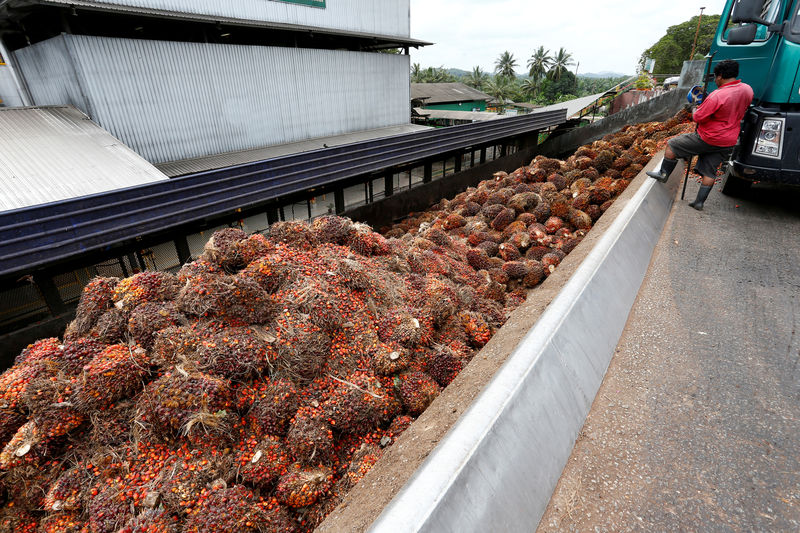By Joseph Sipalan
KUALA LUMPUR (Reuters) - Malaysia, the second-biggest producer and exporter of palm oil after Indonesia, will enforce regulations to ensure that by 2021 its palm oil meets new food safety standards under consideration by the European Union, a minister said on Tuesday.
The EU is considering setting new limits by an as-yet unspecified date on food contaminants in refined fats and oils, and is discussing imposing a safety level for so-called 3-MCPD esters found in palm oil.
The European Food Safety Authority has said the esters raise potential health concerns.
"The palm oil industry in Malaysia has been instructed (by the government) to adhere to the EU-prescribed level of 3-MCPDE of 2.5 ppm for food products by 2021," Malaysia's minister of primary industries, Teresa Kok, told an industry event, referring to contaminants in milligrams per kilo of oil.
"We are now in the process of enforcing several regulations to ensure that palm oil produced meets the acceptable safety level for 3-MCPDE."
Malaysia last month said new EU rules could hurt demand for palm oil in food - which accounts for nearly 70% of global consumption of the oil, and where it is used in products such as bread and chocolate spread.
The $60 billion palm industry is often blamed for stripping tropical rainforest, and the EU this year introduced a law to phase out palm oil from renewable fuel by 2030 due to deforestation concerns. Malaysia and Indonesia have said they plan to challenge the law at the World Trade Organisation.
The EU biodiesel market is worth an estimated 9 billion euros ($10 billion) a year.
"Despite our best efforts, if certain importing countries choose to impose discriminatory trade barriers against palm oil producing countries, we not must not keep silent nor hesitate to take counter measures," Malaysian Prime Minister Mahathir Mohamad said at the same event on Tuesday.
Kok said 60% of the country's total oil palm planted area had received the Malaysian Sustainable Palm Oil (MSPO) certification, which requires growers to meet certain standards regarding environmental protection and workers' rights.
The Southeast Asian country aims for 70% oil palm areas to have received MSPO certification by February, Kok said.
She reiterated the Malaysian Palm Oil Board's warning of legal action or licence cancellation if palm mills and growers with plantations of 100 acres and more are not certified by Jan. 1.

Kok said on Monday certification among smallholder farmers, who account for nearly 40% of Malaysia's total palm oil production, was particularly low because of concerns they would not be able to recover the high costs of complying with the regulations.